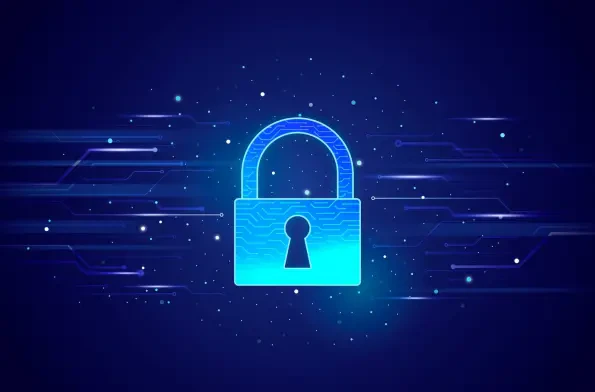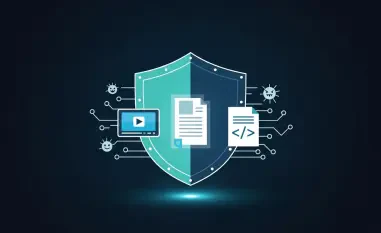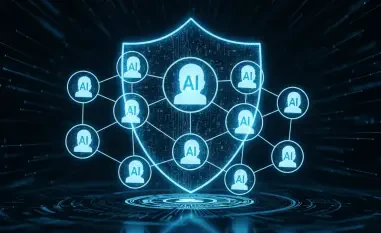In the wake of a substantial data breach at the British Library, approximately 600 gigabytes of sensitive information were compromised due to a Rhysida ransomware affiliate. This breach not only affected the personal details of staff and library users but also resulted in massive operational disruptions. Despite the severity, the UK’s Information Commissioner’s Office (ICO) decided not to conduct an in-depth investigation, relying instead on the library’s openness and self-examination. This decision has sparked a debate among cybersecurity professionals, public institution officials, and the general public. Here, we gather insights from various experts to paint a comprehensive picture of the impact and implications.
Setting the Scene: The Breach That Shook an Institution
The breach was a jarring event, revealing the vulnerabilities of esteemed institutions in the face of cyber threats. Initially, this event triggered discussions about accountability and oversight in public sector cybersecurity. The breach highlighted the cost of not having robust preventive measures in place, as evident by the notable £1.6 million loss suffered by the library. In this context, resource constraints and the prioritization of improvements over punitive actions by the ICO emerged as pressing concerns.
Industry insiders emphasize the importance of active risk management strategies, urging institutions to review incident response plans regularly and ensure stringent staff training. While the library quickly initiated an 18-month phase to renew its IT infrastructure, it became pivotal to determine whether this approach would restore trust and bolster defenses against future threats.
The ICO’s Decision: A Prudent Approach or a Missed Opportunity?
The choice by the ICO to refrain from further investigation has divided opinion among cybersecurity professionals. Some argue that the decision reflected a pragmatic approach that acknowledged agency resources’ limits and favored cooperative measures over punitive ones. The praise for the British Library’s transparent handling of the incident indicates a preference for collaboration and learning.
On the flip side, critics suggest that this leniency might create a precedent that undermines rigorous action. They caution that without stringent enforcement, public sector entities might perceive the bar for cybersecurity thresholds as flexible, potentially risking further breaches. Skeptics call for more decisive regulatory actions to ensure that learned lessons translate into actionable change across similar institutions.
Learning From the Incident: How the British Library’s Openness Shaped Reactions
The comprehensive report published by the British Library was lauded for its transparency and candid assessment of the breach’s details. This proactive stance encouraged constructive dialogue within the industry and prompted similar organizations to reevaluate their cybersecurity frameworks. By outlining the failings, such as the lack of multi-factor authentication, the report served as a teaching tool for others in the public sector.
In response to the British Library instance, other institutions began investigating their vulnerabilities and initiated discussions on adopting more effective cybersecurity practices. The library’s openness helped shift perceptions, fostering a culture that values transparency and preventive measures over silence and procrastination.
Evolving Cybersecurity Landscapes: Adapting to New Threats
The British Library case underlined the rapid evolution of cyber threats, prompting organizations to reassess their current defenses and consider adopting cutting-edge technologies. Experts point out that transitioning to cloud-based solutions can be crucial in enhancing security, as these platforms offer greater resilience compared to traditional on-premises systems.
As multi-factor authentication gains recognition for its potential to prevent unauthorized access, a renewed emphasis on deploying such measures across all internet-facing endpoints is opening doors to more robust defenses. This evolution in cybersecurity strategies highlights the need for modern IT solutions to address the dynamic threat landscape effectively.
A Closer Look at the Role of Multi-Factor Authentication in Preventing Breaches
Exploring the lessons imparted by the incident, professionals emphasize the vital role of multi-factor authentication (MFA). MFA’s inclusion in security protocols could have drastically limited the incident’s escalation, shedding light on its necessity in today’s cybersecurity environment. Discussions focus on other preventive measures, such as advanced network monitoring and regular staff training, to buttress organizational defenses.
These insights prompt organizations to weigh their readiness for emerging threats, recognizing that stronger defenses hinge on both technological upgrades and employee vigilance. As new threats emerge, cultivating a proactive security culture becomes indispensable.
Key Lessons from the Breach: What Organizations Should Prioritize
The British Library’s breach has underscored valuable lessons on the prioritization of cybersecurity measures. Implementing multifaceted defense strategies includes not only modernizing infrastructure but also focusing on human elements, such as sufficient staff instruction and routine vulnerability assessments. This incident serves as a case study, encouraging similar institutions to foster a culture of accountability and readiness.
It’s crucial to establish a culture of open communication regarding breaches, as stakeholders become more aware and responsive. By learning from this breach, organizations can solidify trust with their patrons and employees alike while mitigating potential risks.
The Road Ahead: Reflecting on the ICO’s Role and Organizational Lessons Learned
As organizations digest the lessons from the British Library breach, there arises a call for enhanced resilience in the face of uncertain cyber landscapes. The ICO’s role underlines the need to adapt regulatory approaches to balance resource constraints with effective enforcement, ensuring public institutions adopt unwavering security practices.
The long-term implications of this breach emphasize the importance of continual improvement in responding to cyber threats. Moving forward, institutions and regulators are encouraged to remain vigilant and proactive, actively addressing vulnerabilities to prevail in an ever-evolving digital world.













